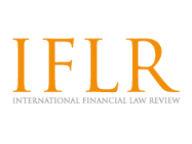Faculty News
—
Professor Arun Sundararajan reacts to the failure of Proposition F, which sought to restrict Airbnb in San Francisco
—

Excerpt from Bloomberg -- "'It’s a validation that they can counter regulation that might be restrictive to their growth,' said Arun Sundararajan, professor at New York University’s business school who studies the sharing economy. 'Strategically, it’s a victory. Here’s a piece of regulation that wasn’t in Airbnb’s best interest and people have voted against it.'"
Faculty News
—

Excerpt from Bloomberg -- "'It’s a validation that they can counter regulation that might be restrictive to their growth,' said Arun Sundararajan, professor at New York University’s business school who studies the sharing economy. 'Strategically, it’s a victory. Here’s a piece of regulation that wasn’t in Airbnb’s best interest and people have voted against it.'"






















